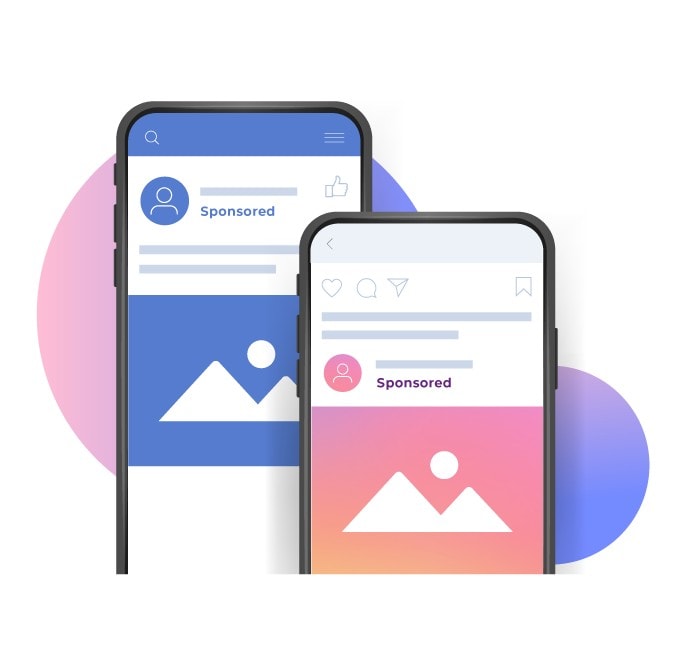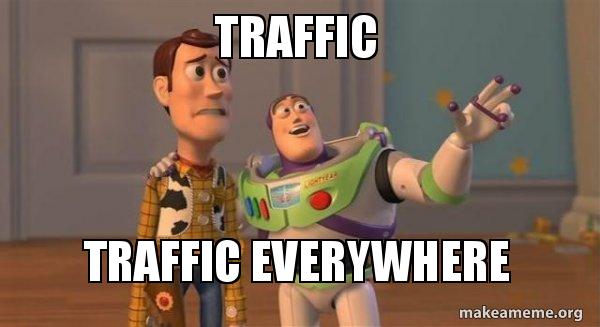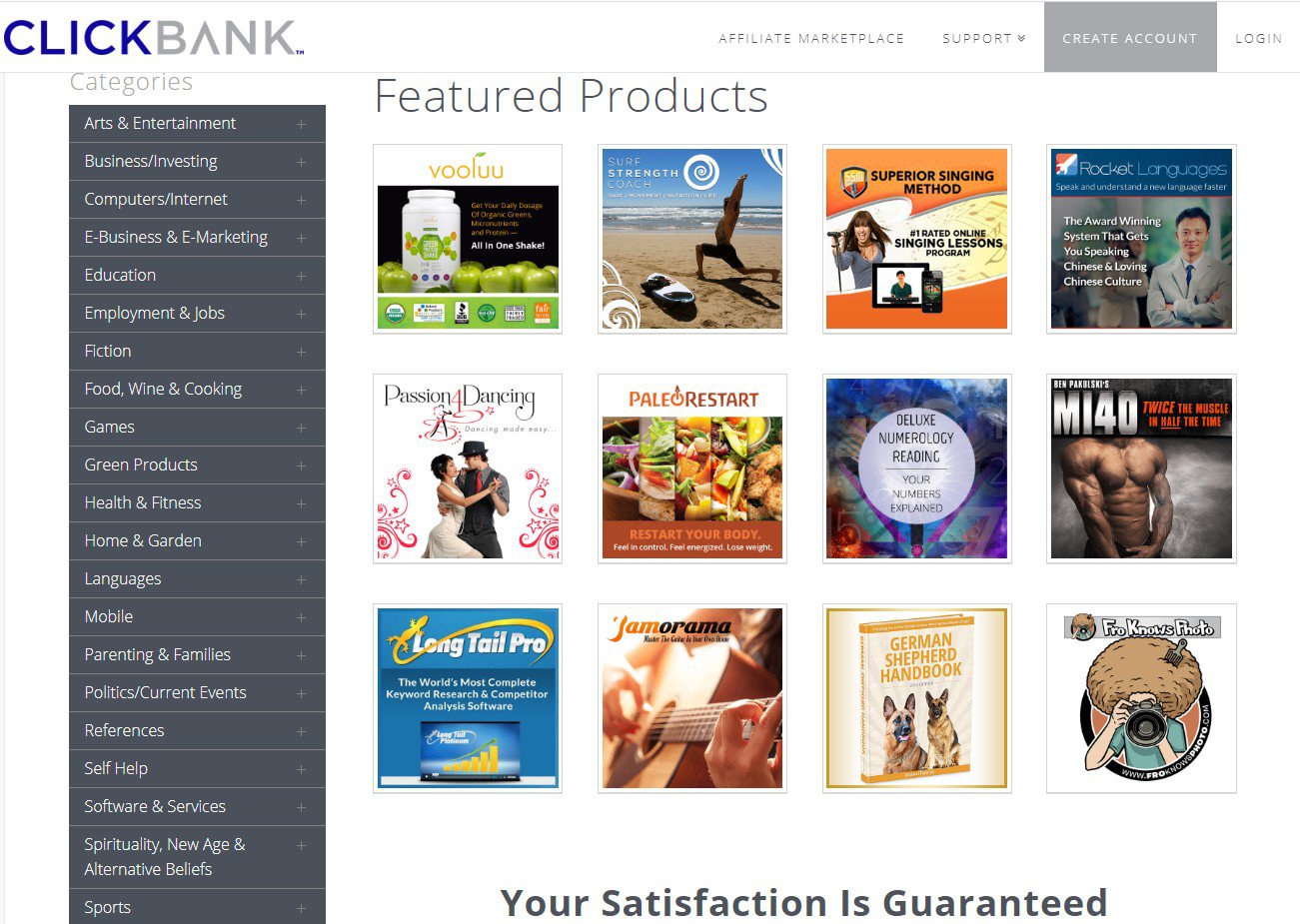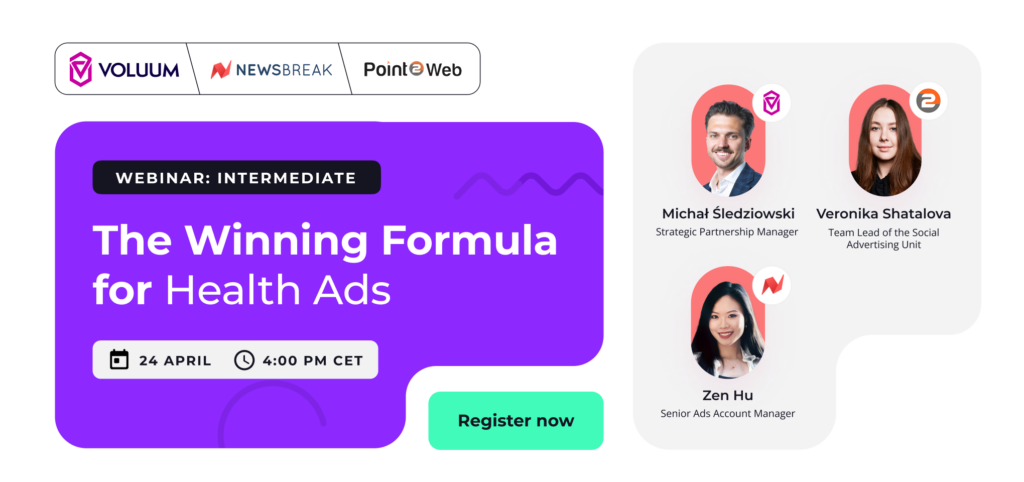Affiliate marketing can be a dream job for many, especially for those, who want to be independent and work from home. And because it’s 2025, you don’t even need your own website to start your affiliate adventure!
There are many ways to reach people on the Internet without worrying about designing and hosting a website.
Keep reading.
Affiliate Marketing Basics
Before we move on to discussing if you really need a website to become a successful affiliate, let’s talk about the things that you absolutely must have to start (and succeed). Don’t worry, though. It’s not much.
In a nutshell, your major goal as an affiliate is to deliver the right offer to the right customer at the right time. And that essentially comes down to two key elements: an offer and a source of traffic.
Offer: What you promote
In order to make money, you need to have something to market (i.e. to advertise).
That’s why the very first thing you absolutely need is the right offer. Many companies use affiliate marketing as an additional sales channel that allows them to get to people that would normally be outside their reach. Check out affiliate programs from the likes of behemoths like Amazon or Ebay, check out your favorite gaming or travel companies – you would be surprised how many of them have affiliate programs!
Or, you can join a bunch of affiliate networks to make the search a little bit easier. Affiliate networks are platforms where often smaller companies try to find advertisers for their products.
Ad network: Where you promote it
That offer of yours has to be advertised somewhere. Be it Facebook, Google, or your girlfriend’s lifestyle blog. The better the match between the traffic source’s target audience and the contents of the offer you are promoting – the higher the chance that it will be a profitable deal.
That’s the basics of the basics.
Now, the tricky part is to sell your offer to the audience. And that’s where the landing page comes in.
Website aka Landing page for Affiliate Marketing
While having an entire website just for your affiliate deals may seem a little too much, setting up a landing page for each of the offers you promote is just as important as choosing the right traffic source.
Why?
It’s pretty simple, really. Landers increase conversions. Do you really need more intel than that? Probably. So here’s how it all works.
What is a landing page?
A landing page is a one-page website, so technically – yes, you may need to know how to develop one. At the same time, landers are pretty easy to set up and you can use the same draft for as many pages as your heart desires. Just customize each one a little bit for a specific promo – and you’re all set!

Let’s be honest – affiliates don’t always have the best reputation with the community. Affiliate links may seem suspicious and the services they redirect to tend to be frowned upon. Landing pages however, – when friendly and sincere – can make the entire customer experience a little more transparent. And people love transparency these days.
Landers make your offers more informative
It’s true that brevity is the soul of wit. It’s a little less true, though, when you are trying to sell something. People need a clear understanding of what they are about to invest in. But it’s not always possible to fit all that in the limited amount of characters provided by the publisher.
Of course, it also means that you need to provide an effective copy and invest in the appropriate design for your lander. But in the end, it can almost guarantee you that long-hoped-for conversion.
With landing pages you seem more credible
Some of the largest affiliate programs (e.g. Airbnb) evaluate your worth as a potential partner affiliate based on your online presence. Here, actually owning a website (or a lander) may become a decisive factor.
Think of that as submitting your Facebook or LinkedIn profile while applying for a new job. Recruiters are driven by your online presence and, as an affiliate, it’s often reduced to a one-page website telling the story of your successes.
Moreover, there’s no better place to store all the positive feedback you received over the years. Social proof is a valuable currency these days – use it!
And it doesn’t have to be difficult! I even wrote a very detailed article with an overview of the best landing page building tools on the market – go ahead and check it out or try Zyro website builder if you’re looking for something off the beaten pass.
I’m sure you’ll find something to satisfy your affiliate needs!
Lander Vs Pre-Lander: Key differences
Let’s take a step back for a second and talk about pre-landers.
Shorter and more straightforward than your typical landing pages, pre-landers appear right before the offer and serve one purpose only – provide potential customers with the general idea of what the offer is going to be about.

Pre-landers pop up right before a user is about to be redirected to your offer and tell them a story about the product, about the offer, or about you. They are a great way to generate engagement and increase conversions. At the same time, landers are much more suitable for lead generation.
However, for either of those elements to bring you any use at all, you need to make sure everything works smoothly. One way to simplify things is by investing in a proper ad tracker.
What’s an ad tracker and how can it help?
Ad trackers, like Voluum, help digital marketers and affiliates to gather data on their potential customers online.
Do you want to know where most of the people interacting with your ad are coming from? It could help you adjust your message to match the cultural and social values of the target group.
Curious about what operating systems your TA is using? Perhaps, you should spend more time optimizing your ad’s mobile responsiveness.
Always wanted to see which keywords brought people to your ad in the first place? A/B test different ad copies and see what kind of audience responds to different messages.
Imagine all the great marketing you could do knowing exactly who you’re marketing it to!
And ad trackers are the tools that let you do just that.
In a way, investing in a good ad tracker is exactly what sets super-affiliates from beginners. So why not do things the right way from the start?
Having a lander and using it for affiliate marketing makes things so much easier. But if you want to do it the hard way – you can try and succeed as an affiliate without a website too.
Affiliate marketing WITHOUT a website
We’ve already established that you don’t really need a website to be an affiliate.
I guess you expected a bit more than that from this post though. So, let’s see how great your affiliate life could be without wasting hours on choosing the perfect template for your personal brand.
Here are 3 bulletproof ways to make money as an affiliate without a website.
1. Use paid traffic
You buy ad placements on networks like MGID, PropellerAds, or ExoClick. Instead of driving traffic to your own site, you send users straight to the affiliate offer. Voluum helps you track performance in real time—impressions, clicks, conversions, ROI. Use tracker-based redirects and rules to rotate offers or filter audiences.
This method is quick to set up and scale. If your targeting is sharp and creatives are enticing, you can see results fast. However, expect a learning curve and testing phase to find profitable combinations.
| Pros | Cons |
|---|---|
| Scalable with large traffic volume | Requires upfront budget |
| Fast results with right setup | Steep learning curve for beginners |
| No need for organic audience | Need to manage ad approvals |
| Full control via tracker like Voluum | High competition in many verticals |
2. Advertise on Social Media (i.e. Facebook, Instagram, Twitter, etc.)

Social media platforms are high-quality traffic sources. That’s why most of them would offer paid advertising plans for affiliates/business owners or may restrict access to intermediaries whatsoever.
Create content (videos, stories, tweets) that subtly promotes your offer. Add the affiliate link in your bio or as a swipe-up.
Running affiliate ads on social giants like Facebook and Instagram may seem attractive and simple at first, but there are many pitfalls to beware of. But with a trending post or viral reel, you could generate hundreds of clicks fast. Ideal for beauty, dating, fitness, or sweepstakes offers. However, consistency is key.
| Pros | Cons |
|---|---|
| Free traffic if organic | Platforms may restrict affiliate links |
| Great for visual/product-based niches | Need to be consistent to grow audience |
| Easy to test different offers | Risk of account bans if not compliant |
| Viral potential | Algorithm-dependent reach |
3. Work with affiliate programs that don’t require having a website (e.g. ClickBank, Amazon)
A lot of well-known affiliate marketing programs (see our guide through the best ones here) would cooperate with affiliates who don’t have their own website. And, some of the most common solutions include ClickBank and Amazon. It’s a great way to get started in the business.
Yet again, having a friendly landing page or a short pre-lander will significantly boost your conversions and give you access to better-quality affiliate programs, networks, and ad exchanges.
| Pros | Cons |
|---|---|
| No approval process for many programs | Some links may expire or be geo-restricted |
| Instant access to affiliate links | Low commission rates (esp. Amazon) |
| No website or technical setup needed | Some platforms require volume to stay active |
| Huge variety of niches and offers | Harder to build brand or long-term strategy |
4. Use a lead magnet
A lead magnet is something that people want and are being drawn to it with a metaphorical magnetic pull. This could be an ebook or an e-learning course, whitepaper, industry report, newest stats or any other gated content.
So, instead of directly pushing your affiliate link, offer a free resource in exchange for an email address. Once the user opts in, they receive the lead magnet—and you can promote affiliate offers either immediately (on a “thank you” page) or via email. You don’t need a traditional website; just a simple opt-in form using a free tool.
For example, if your offer is fishing equipment, write an ebook about the specific part of fishing that is related to your offer and pitch that offer there. Don’t be too salesy, your ebook still needs to provide value to the reader on its own. Be informative and honest, and people will reward you for this with visits and conversions.
This builds long-term value. You’re growing a list and generating affiliate clicks. Plus, lead magnets often convert better than cold traffic because you’re offering something upfront.
| Pros | Cons |
|---|---|
| Builds an email list you own | Requires some content creation (for the lead magnet) |
| More value-driven than direct linking | Slightly more setup than direct-to-offer tactics |
| Increases trust and conversions | May need to learn basic email marketing |
| Works great with high-ticket or recurring offers | Slower traffic compared to paid ads |
5. Email & SMS marketing is not dead
This requires you to gather or purchase a list of email addresses or phone numbers. The good thing is that if you do get them, you will be able to market your offer efficiently and without the need for an external page. Text messages or emails already contain some text, and they usually direct straight to the offer.
Send emails with your affiliate offer directly to users. Focus on high-converting subject lines and CTAs. You don’t need a website if you embed the affiliate link directly in the email. Make sure your offers and email provider are compliant with regulations like CAN-SPAM or GDPR.
| Pros | Cons |
|---|---|
| High ROI with quality lists | Requires technical setup and tools |
| No website needed for direct linking | Spam filters and regulations to navigate |
| Ideal for repeat promos | Buying/renting lists can be risky |
| Scalable with automation | Compliance is a must (CAN-SPAM, GDPR) |
6. Put your affiliate link in forum posts
Forums are very much alive and they haven’t been killed by social media. Many people appreciate clear structure and lack of algorithms and find many forums to be a great place to find relevant information.
Many forums and classified platforms allow advertising for a fee—or even for free if you’re contributing useful content. You can create a thread reviewing an offer, sponsor a post, or DM interested users. Forums often have high engagement and niche-specific traffic that converts well.
| Pros | Cons |
|---|---|
| Highly targeted traffic | Risk of bans if not following forum rules |
| Low-cost or even free exposure | Limited scalability |
| High trust if you’re active in the community | Time-consuming to establish presence |
| No website required; links can go direct | Forums may have outdated interfaces or low UX |
7. Create a YouTube or TikTok channel
People love watching videos. It’s the best way to put your message out there – better than writing on social forums. It is also harder – having a video channel on a dedicated platform such as YouTube or TikTok requires you not only having something to say but also taking care of the visual side: the camera, the presence, editing.
But if you only manage to address those issues, you can get a way of reaching potentially thousands or even millions of people without setting up a single web page.
Make videos reviewing products, showing how-to tutorials, or discussing a niche topic (e.g., “Top 5 VPNs in 2025”). Drop affiliate links in the description. This content is evergreen and can keep bringing in commissions over time.
Pros & Cons:
| Pros | Cons |
|---|---|
| Evergreen content can earn passively | Requires time to create videos |
| High trust and engagement | SEO and competition can be tough |
| Great for product demos or reviews | Monetization takes time |
| Traffic comes from both search & social | May need basic editing skills |
8. Record podcasts
Don’t want to put yourself in front of a camera? Record a podcast! The popularity of those exploded a few years ago. People LOVE to hear other people while commuting, jogging or cooking. The most popular podcaster attract millions of listeners. All you need to start is a microphone and an idea!
Start a podcast in a niche you know—fitness, personal finance, online business, gaming, dating, etc. During episodes, mention affiliate products as sponsors, include links in episode descriptions, or integrate natural recommendations into your content. Instead of needing a website, use a redirected link you can easily mention verbally.
| Pros | Cons |
|---|---|
| Builds a loyal, returning audience | Takes time to grow an audience |
| Easy to promote links in show notes | Audio quality matters for listener retention |
| Great for high-ticket and recurring offers | Discoverability can be slow without marketing |
| Establishes you as an authority | May require learning audio tools & basic editing |
Tips on how to be seen without a website
You now know how you can advertise offers without the hassle of setting up your own website. But to do this efficiently, go through the tips below.
Prepare quality content
In the times of AI-generated texts, content is still the king. AI is not so precise, it produces bland and repetitive content. When you don’t have a separate website with a lot of text, your advertising should be short and to the point.
Learn the audience
You should have a general idea about what kind of people may be interested in your offer. Research your audience before you launch the first advertising campaign. Think about who they are and what kind of problems they have and how your offer can solve it.
Research keywords
With or without a website, keyword research is marketing 101. Use free or paid tools to learn what people type into search engines to find offers like your own and build your strategy around it. Without a website, you won’t be able to leverage SEO efforts to your advantage, but you could still use the keywords when advertising on forums or social media, or with PPC marketing on search engines. This way your posts will be more findable to the relevant audience.
Track affiliate marketing campaigns without a website with Voluum
If you were reading carefully, you can see that running affiliate marketing campaigns without a website can be a bit of a b… Yet, it doesn’t have to be. The key issues you can face as an affiliate trying to build your business include:
- Dealing with inconsistent, low-quality, or fraudulent traffic
- Struggling with selecting the best-performing offers
- Managing several campaigns at once
- Analyzing, optimizing, and testing your existing ad campaigns
There’s a remedy for that. And the remedy is an ad tracker. But not just any ad tracker – a really good one, the one created by affiliates who’ve been there and who know your struggles firsthand.
The remedy is Voluum.
With Voluum you can…



With Voluum, it truly doesn’t matter if you have a website or not – you have an advanced AI-powered solution that will take care of your affiliate ad campaigns for you. So why not give a try right away?
Here’s a quick take-away for you:
- You can do affiliate marketing without a website;
- Use existing traffic, social media, and different affiliate programs to promote your affiliate links without a website;
- Having a website makes you look more professional and trustworthy among both customers and large affiliate networks;
- Get an ad tracker like Voluum and stop worrying about getting a website, focus on your campaigns instead!
So, if you’re not very tech-savvy and just a thought about developing your own website terrifies you – relax, you can become an affiliate legend without learning a thing about programming. Yet, if you also don’t wanna miss out on all the sweet perks and do it oh-so-much faster – just do it and join the cream of the crop of affiliate world faster.
Get even better results with Voluum – with or without a website!
Frequently Asked Questions (FAQ)
1. Do I really need a website to do affiliate marketing?
Nope! While a website can boost credibility and conversions, it’s not a requirement. You can use paid ads, social media, forums, email, podcasts, YouTube, or affiliate programs that don’t require a website. Many successful affiliates start without one.
2. What’s the difference between a landing page and a website?
A website usually includes multiple pages (home, about, blog, etc.). A landing page is just a single, focused page designed to convert traffic into clicks or leads. It’s much easier and faster to set up—and often all you need to start promoting offers.
3. Is it legal to do affiliate marketing without disclosing the link?
No. Most countries (and affiliate programs) require you to disclose affiliate links. This builds trust and keeps you compliant with laws like the FTC regulations or GDPR. Always be transparent.
4. Can I make real money without a website?
Yes, especially if you learn to drive targeted traffic and choose high-converting offers. Platforms like TikTok, YouTube, podcasts, and email lists can generate hundreds or even thousands of dollars in affiliate commissions without a single webpage.
5. Which traffic source is best for beginners without a website?
It depends on your skills. Some beginner-friendly channels are:
- Social media (TikTok, Instagram Reels) for creative types
- Email or SMS marketing for those with access to a list
- Paid traffic + tracker (e.g., Voluum) if you’ve got a budget and want fast results
6. What if I want to build a website later? Will it help?
Definitely. A website or landing page:
- Improves conversion rates
- Makes you look more professional
- Unlocks access to premium affiliate programs You can start without one and add it once you’re more confident.
7. How do I keep track of all my affiliate campaigns without a website?
Use an ad tracker like Voluum. It helps you:
- Track traffic and conversions
- Rotate offers
- A/B test creatives
- Automate decisions based on real-time data
It’s your mission control for affiliate marketing—even if you’re site-free.
8. What are pre-landers and why should I use them?
A pre-lander is a short, teaser-like page that appears before the main offer. It warms up the audience, builds trust, and boosts click-through rates. Even without a full website, you can use pre-landers to bridge the gap between an ad and an affiliate offer.
Yes, if you’re spammy or break platform rules. Always check community guidelines, add value before promoting anything, and use redirects or cloaked links when allowed. Building trust is more important than dropping links.
10. What kind of offers work best without a website?
Look for:
- Digital products (eBooks, software, online courses)
- High-converting CPA offers
- Recurring subscriptions (VPNs, SaaS tools, dating sites) These tend to perform well on direct traffic channels like YouTube, TikTok, or email.









4 comments
Nice article, you can send email also via solo ads.
but you should ask your am at first.
I suggest to join suitable networks like maxbounty, peerfly, mostcpa
and then start your journy.
Very useful post. This is the first time I visit here. I found so many interesting stuff in your blog especially its discussion. Really its great article. Keep it up.
Thanks a lot informative post. Is there any alternative to ClickBank?
Great post! Absolutely for affiliate marketing, you don’t need to have a website, you only need traffic or audience and it may be on your youtube channel, Instagram, or Facebook. What is must only to paste the affiliate link on your post for verifying the sales made through your post or video.